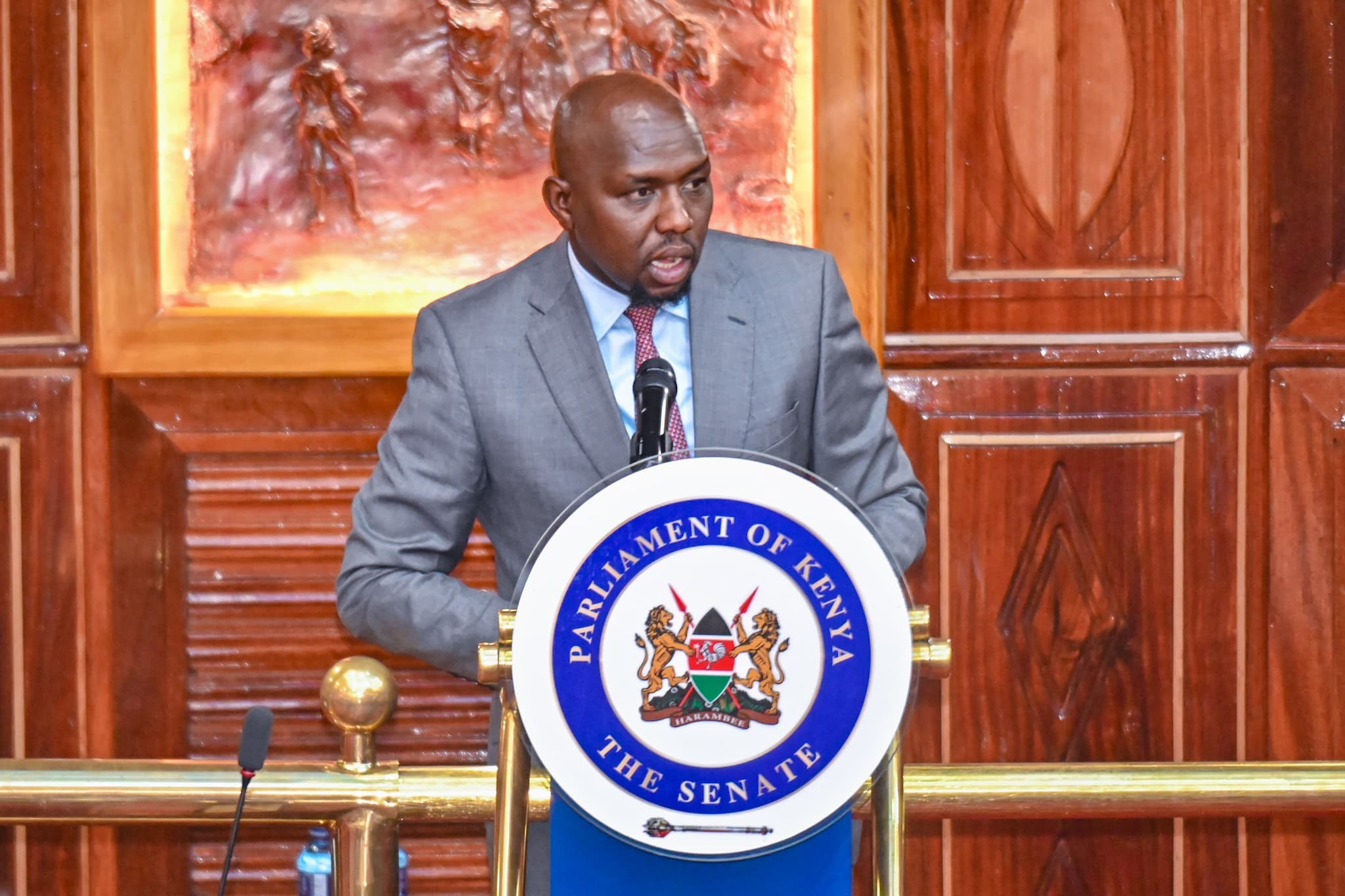We're loading the full news article for you. This includes the article content, images, author information, and related articles.
Interior Cabinet Secretary Kipchumba Murkomen asserts that government reforms are restoring nationwide stability, yet recent crime data, significant civil unrest, and persistent threats from banditry and terrorism present a complex, evolving security landscape for Kenya.

NAIROBI, KENYA – On Wednesday, 5th November 2025, East Africa Time, Interior Cabinet Secretary Kipchumba Murkomen stated that a series of comprehensive security reforms are successfully restoring peace and stability across Kenya. Speaking before the Senate, Murkomen linked long-term peace to infrastructural development, appealing for more funding for security roads to combat banditry, particularly in the North Rift region. He reported “notable progress” from the ongoing ‘Operation Maliza Uhalifu’ in the Kerio Valley, stating that peace was returning to the area.
The Cabinet Secretary's assurance comes on the back of a raft of systemic changes initiated within the National Police Service (NPS) throughout 2025. These reforms were notably spurred by public outcry following the death of a blogger in police custody in June. In response, on 16th June 2025, Murkomen announced measures aimed at enhancing transparency and accountability, including the mandatory installation of CCTV systems in all 1,209 police stations within two years and the full digitization of the Occurrence Book (OB) within one year. Further reforms announced in September included plans to redesign police stations to house gender and child protection desks, introduce new uniforms, including maternity wear for female officers, and establish a clear legal framework for promotions to boost morale.
To improve police-community relations, the ministry also launched an upgraded ‘Fichua Kwa DCI’ anonymous crime-reporting centre in July, featuring a WhatsApp line to build public trust. Murkomen has consistently maintained that these reforms are designed to create a “disciplined, efficient, and trusted police service.”
Despite these extensive reforms and official assurances, the national security situation remains complex. Official data released in May 2025 by the Kenya National Bureau of Statistics (KNBS) indicated a 3.5% drop in reported crimes nationally in 2024 compared to 2023. However, more recent analysis from private security firms suggests a more challenging environment in 2025. One report noted a 4.9% increase in criminal activity in the second quarter of 2025 compared to the first. A separate security assessment for June 2025 highlighted a 43% rise in robbery and theft, with criminals exploiting the disorder during widespread civil unrest.
The period from June to July 2025 was marked by significant youth-led protests against proposed tax hikes in the Finance Bill. The demonstrations, which took place across multiple counties, were met with a forceful police response that drew condemnation from human rights organizations for excessive use of force, leading to dozens of deaths and injuries. This period of unrest has strained public trust in law enforcement, a key issue the announced reforms are intended to address.
While overall stability is debated, the government has pointed to successes in specific security operations. In the North Rift, the ‘Operation Maliza Uhalifu’ has been credited with restoring normalcy in some trading centres and schools. This claim is supported by reports from early November of former bandits in Elgeyo Marakwet voluntarily surrendering illegal firearms to authorities.
However, other security challenges persist. On 5th November 2025, Murkomen himself warned of the “growing infiltration of criminal gangs into the bodaboda sector,” which he stated was fueling lawlessness and violent attacks, particularly in Nairobi, Nyanza, and Western Kenya. In response, he announced a nationwide audit and vetting of all bodaboda operators.
Meanwhile, the threat of terrorism remains significant, particularly in the coastal region. On the same day, Murkomen confirmed that the night travel ban on the Lamu-Witu-Garsen road, in place since 2014, will be maintained indefinitely due to the continued threat posed by Al-Shabaab militants. A security report noted 39 terrorism-related incidents in the first half of 2025, all concentrated in counties bordering Somalia.
As the government pushes forward with its modernization agenda for the security sector, the tangible impact on the daily lives of Kenyans remains a subject of intense scrutiny. While targeted initiatives show promise, the broader landscape of urban crime, public order, and terrorism continues to test the nation's resolve and the efficacy of its new security strategies.
Keep the conversation in one place—threads here stay linked to the story and in the forums.
Sign in to start a discussion
Start a conversation about this story and keep it linked here.
Other hot threads
E-sports and Gaming Community in Kenya
Active 9 months ago
The Role of Technology in Modern Agriculture (AgriTech)
Active 9 months ago
Popular Recreational Activities Across Counties
Active 9 months ago
Investing in Youth Sports Development Programs
Active 9 months ago
Key figures and persons of interest featured in this article